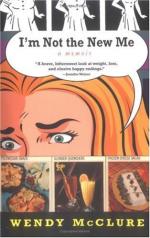In fact, I had got hold of the poem which One-eyed Alexander composed. Its length was about three hundred lines, exclusive of the refrain which the islanders had chanted, and which was inserted six times, occurring at the end of each fifty lines. The rest was written in rather barbarous iambics; and the sentiments were quite as barbarous as the verse. It told the whole story, and I ran rapidly over it, translating here and there for the benefit of my companions. The arrival of the Baron d’Ezonville recalled our own with curious exactness, except that he came with one servant only. He had been taken to the inn, as I had, but he had never escaped from there, and had been turned adrift the morning after his arrival. I took more interest in Stefan, and followed eagerly the story of how the islanders had come to his house, and demanded that he should revoke the sale. Stefan, however, was obstinate; it lost the lives of four of his assailants before his house was forced. Thus far I read, and expected to find next an account of a melee in the hall. But here the story took a turn unexpected by me, one that might make the reading of the old poem more than a mere pastime.
“But when they had broken in,” said One-eyed Alexander, “behold, the hall was empty and the house empty! And they stood amazed. But the two cousins of the lord, who had been the hottest in seeking his death, put all the rest to the door, and were themselves alone in the house; for the secret was known to them who were of the blood of the Stefanopouloi. Unto me, the bard, it is not known. Yet men say they went beneath the earth, and there in the earth found the lord. And certain it is they slew him, for in a space they came forth to the door bearing his head, and they showed it to the people, who answered with a great shout. But the cousins went back, barring the door again; and again, when but a few minutes had passed, they came forth, and opened the door, and the elder of them, being now by the traitor’s death become lord, bade the people in and made a great feast for them. But the head of Stefan none saw again, nor did any see his body; but the body and head were gone, whither none know saving the noble blood of the Stefanopouloi; for utterly they disappeared, and the secret was securely kept.”
I read this passage aloud, translating as I went. At the end Denny drew a breath.
“Well, if there aren’t ghosts in this house, there ought to be,” he remarked. “What the deuce did those rascals do with the old gentleman, Charlie?”
“It says ‘they went beneath the earth.’”
“The cellar,” suggested Hogvardt, who had a prosaic mind.
“But they wouldn’t leave the body in the cellar,” I objected; “and if, as this fellow says, they were only away a few minutes, they couldn’t have dug a grave for it. And then it says that they ’there in the earth found the lord’!”
“It would have been more interesting,” said Denny, “if they’d told Alexander a bit more about it. However, I suppose he consoles himself with his chant again?”




